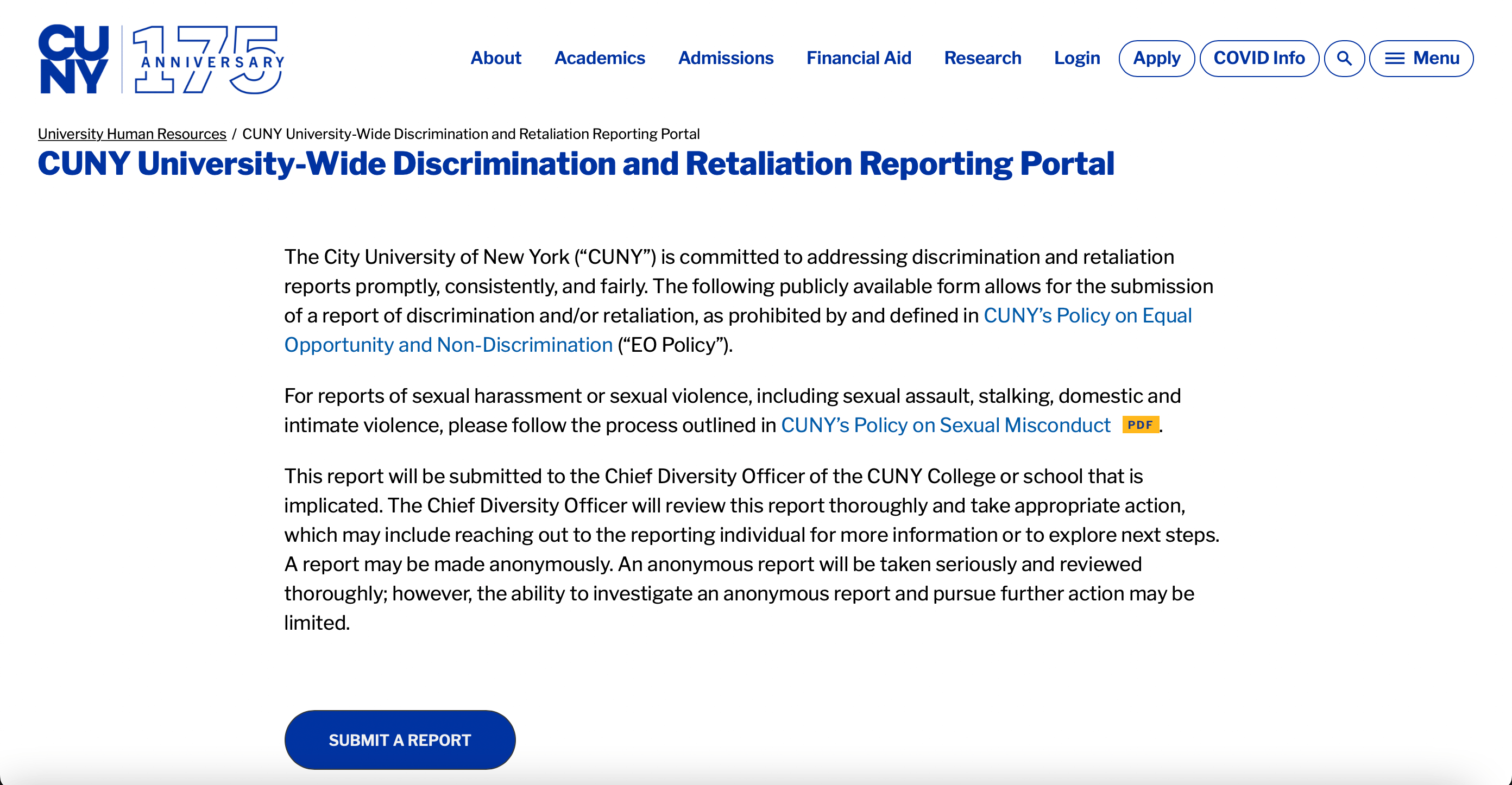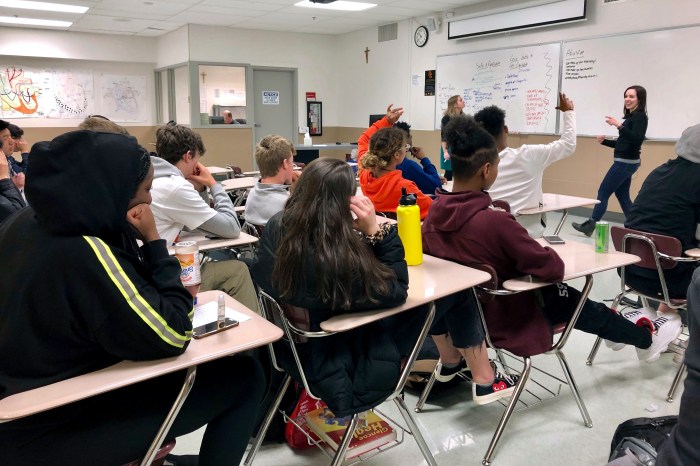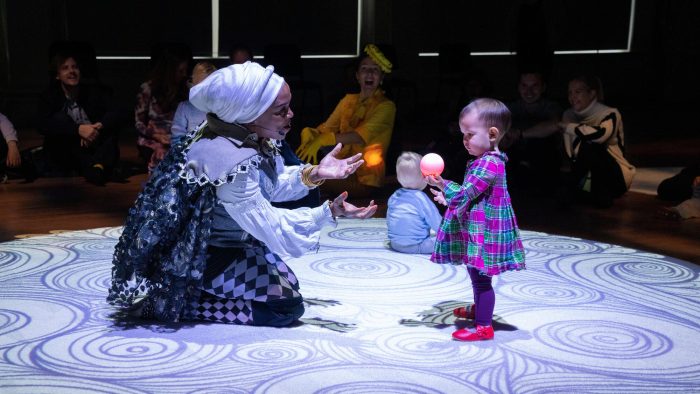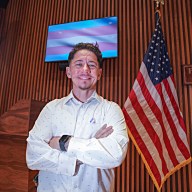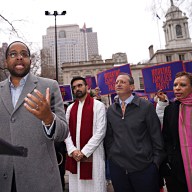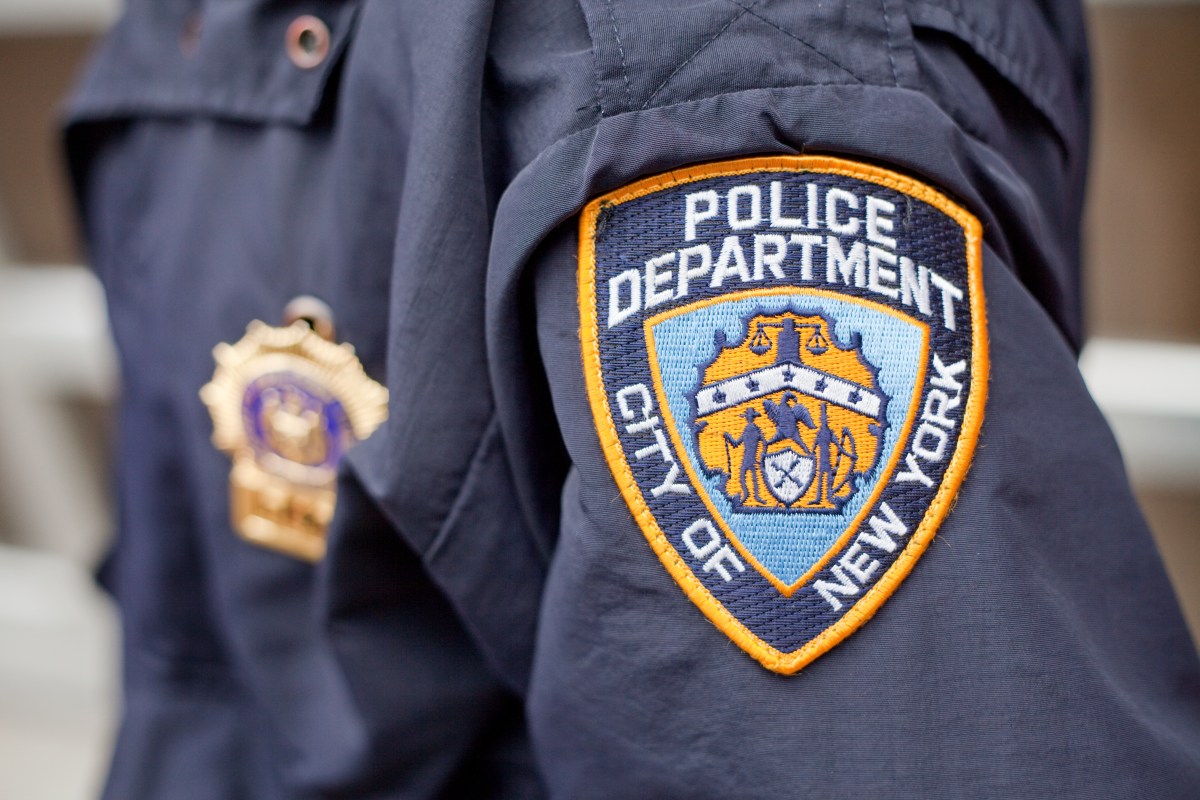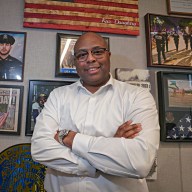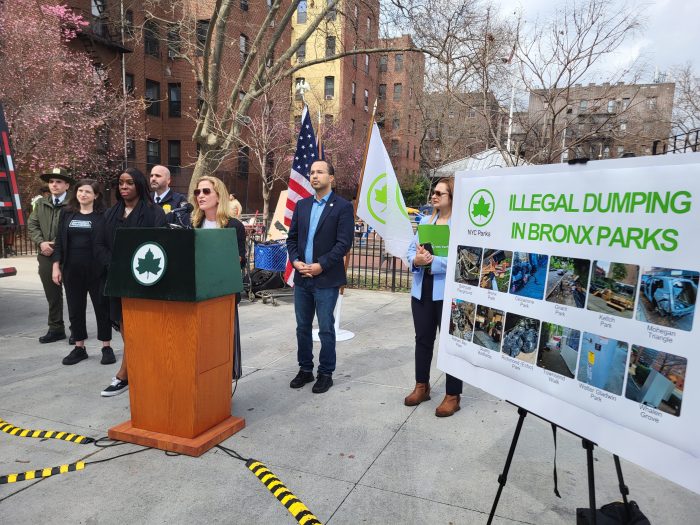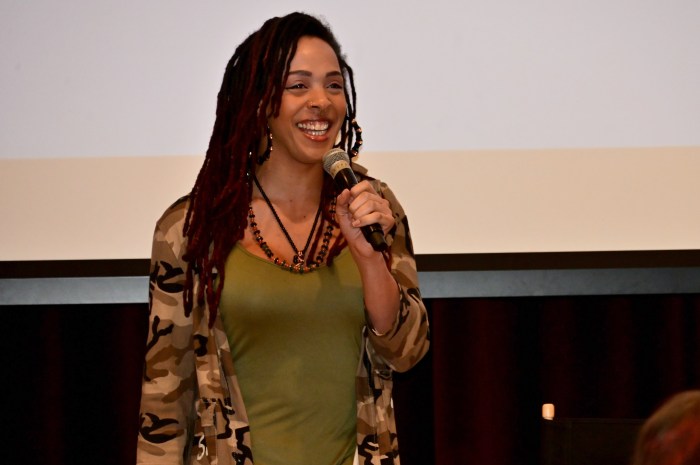The City University of New York announced last week that it has launched a new, centralized online portal for staff and students to report discrimination, hate speech, bias attacks and retaliation.
The portal has been launched at a time when antisemitism is on the rise and is part of a partnership with the Hillel Foundation, the largest Jewish organization serving students and campuses around the world.
While there have always been avenues for students and facility to report incidents of hate and discrimination, there wasn’t a uniform, centralized database for the entire university system. The new portal provides victims with a better way to report prejudice and where justice can be obtained, Chancellor Félix V. Matos Rodríguez said.
“Not all campuses had uniform ways of collecting information,” Matos Rodríguez said. “So, it made it difficult, sometimes accessing how to do that was not always easy. The recompilation of information was also somewhat slow because it tended to be guided by more manual processes. So, the portal came to be a solution for that.”
The portal allows the administration, college deans and presidents to dig into data to see which areas the campus climate needs to improve. The idea is that when the data is properly gathered, CUNY will review the reports two to three times a year to detect any identifiable trends and send reports to the City Council and other agencies when needed, Matos Rodríguez said.
“It would allow us on a quarterly basis to gather data,” Matos Rodríguez said. “It would allow us to be more nimble if we detect increased numbers of filings. We’ll be able to have that information available much more quickly.”
Reports that are filed will follow the normal route of investigations CUNY currently has in place. If the investigation finds the report is a staff issue, then the report normally goes to human resources, Matos Rodríguez said. Depending on the type of report, CUNY’s dean of students offices, vice presidents for student affairs, diversity officers, and Title IX coordinators could then be directed to follow up with reported incidents.
Matos Rodríguez pointed to the sharp uptick in antisemitism and hate incidents against Asians during the past two years in New York City. Last September, CUNY announced a partnership with Hillel International and allocated $600,000 to 24 of its colleges and $150,000 to CUNY’s central offices to address antisemitism and other forms of discrimination. The partnership also followed a visit to Israel and the West Bank by Matos Rodríguez and 12 other CUNY college presidents.
Matos Rodríguez recalled working with students to build bridges across Jewish and Muslim populations at the Center for Ethnic, Racial and Religious Understanding when he was the president of Queens College. Part of that work involved facilitating difficult conversations.
“I invested in it to try to create a space where hateful incidents did not occur, so that when things went south, we began the conversation about how to solve the issues from a place of trust,” Matos Rodríguez said. “I saw how it pays dividends, in terms of tensions between groups.”
The online portal was officially launched last fall to address hate and as a way to provide centralized data for semi-annual reports that CUNY administrators are required to file. Those reports will provide guideposts for further campus policy and training. The tool will allow the colleges to conduct detailed analyses of the reported incidents, identifying trends and patterns so that the system can enhance its diversity, equity and inclusion programming.
Seven CUNY campuses, among others across the U.S., are participating in Hillel International’s initiative to foster safer campus climates for Jewish students. The seven schools include Baruch College, Brooklyn College, College of Staten Island, Hunter College, John Jay College of Criminal Justice, Queens College, and The City College of New York. The American Council on Education is collaborating with the participating schools.
“CUNY’s online portal is an illustration of how vigorously colleges and universities are undertaking efforts to combat antisemitism and hatred and discrimination of all kinds,” said Jonathan Riskind, a spokesperson for the American Council on Education.
The announcement follows a City Council hearing on Brooklyn councilwoman Rita Joseph’s proposed creation of an anti-bullying task force for New York City public schools.
“Universities are part of the space we aspire to get folks who have different viewpoints, different perspectives, different feelings, to be able to solve differences in a respectful way,” Matos Rodríguez said. “There has to be a process they can unlearn hate.”
The CUNY portal to report discrimination and hate incidents can be found here.




